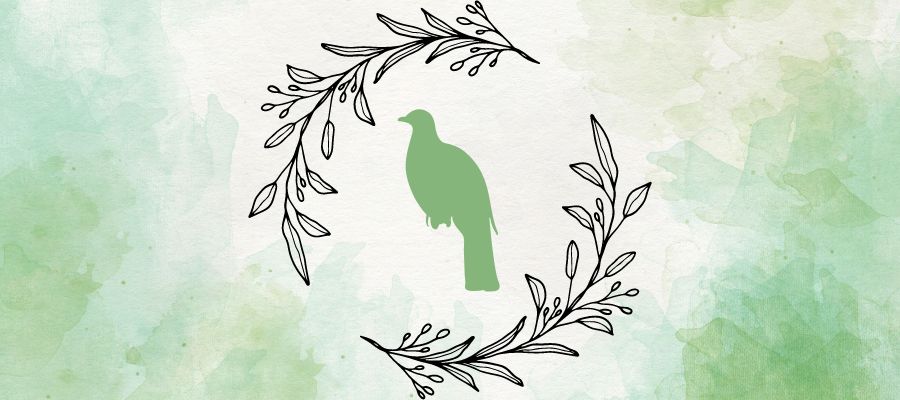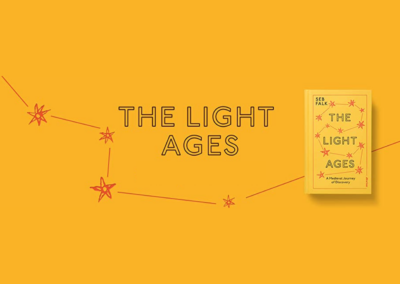
Tēnā koutou, tēnā koutou, tēnā koutou
Kororia ki te Atua kaha rawa, te kaihanga o nga mea katoa, Matua o nga mea katoa.
First, glory to God in the highest, the maker of all things, the Father of all things.
Ka mihi au ki te whare nei, ki te whare wanaki o Aoraki
I greet this place, this whare, Lincoln University,
Ka mihi au ki te minita, te kaiawhina, Chris,
ka mihi ki nga tauira Karaitiana, ratou ko nga kaiako, nga tauira katoa
Greetings to Chris, to Philip, to the Christian Fellowship, to all students and staff
Thanks for coming. It’s an honour to be here.
I’m Silvia, I call myself a climate activist these days, in a middle-aged white middle-class kind of way. I organise stuff and write books and just generally try to promote conversations around faith, science and the environment. Plus I’m an ordained minister, a counsellor and an administrator for NZ Christians in Science. This evening is a joint event by the Student Christian Fellowship and Christians in Science. Take a brochure, find us online.
When Chris and I started talking about diving into the discussion about faith and science, here at Lincoln, he put up a pinboard asking ‘Who is more important, humans or animals?’
And here are the results of his highly scientific survey … a bunch of you put pins in for ‘Animals’, and another bunch said ‘Humans’. And over half of you chose the middle, presumably saying that both are most important, but clearly swinging towards the side of the animals. Hm. What does this say about what you value and what you are learning here at Lincoln? Clearly, most of you don’t want to have to choose between humans and animals, but you do definitely value animals. This makes perfect sense as many of you are training to work with or protect non-human life, including cows and kereru.
As a pastor on about creation care I jump straight into the question – what difference does faith make? How do Christians see the relationship between humans and animals? We don’t talk about this nearly enough. Hands up anyone you have ever been to church or watched a Christian teaching online. Keep your hand up if you have ever heard a sermon on this topic. Has a pastor taught you about what the Bible has to say about animals?
You might have heard or read about some of the famous animals in the Bible … such as …? .. the snake in the Garden of Eden … the animals who went in 2 by 2 into Noah’s ark, and the dove who was the sign of hope …the donkey Jesus rode into Jerusalem …
Has anyone heard the story of the donkey who talked? Numbers 22:21-35
The poor donkey gets sick of being whacked by the prophet Balaam and God gives him a voice to complain about it! It’s a brilliant story, and actually very relevant when we think about how we humans have treated many animals in the world.
But the Bible has actually quite a lot to say about the relationship between humans and animals, and for Christians, the Bible is the basis on which we work out our ethics, and our values about how we live in the world.
I’ve chosen just 3 big ideas from the Bible, though there is plenty more that could be said. and I’m passionate about these being very relevant for both our personal lives and our response to climate change.
First, in the beginning, God created the heavens and the earth.
Big Idea 1: God made every living thing.
We have two creation stories in the Bible: the 7-day story, in which animals are created by God’s word on the 6th day of creation, before the people. And the Adam and Eve story, where God gets his hands dirty, forming the first person first and then shaping the animals from the earth. Personally, I don’t feel the need to squash the two stories together, I think it’s awesome that we have two different perspectives, right there at the beginning of things. The point is, that God did it. God is the Kaihanga, the Creator of all. The origin, the purpose of it all, the source, the vast intelligence behind the incredible biodiversity of all life that has ever lived. God. For us in Christians in Science, we are fascinated by the how of creation, and we see the complex processes of evolution as part of the answer to how God has created all living things. But even more significant is the ‘who’ – God. Infinite love and power are expressed in countless acts of creativity.
So what is the ‘So What’? If every living thing is made by God, then every living thing has its own unique value. Biodiversity matters to God because God invented it and invests in it. Every living thing has its own voice, and its own relationship with God.
I also just have to point out how much Jesus valued all living things, from his birth in the manager surrounded by animals to his obvious love for birds and seeds and lambs. He told stories about them all the time, and one of his most important names is The Good Shepherd.
Don’t read every reference to animals in the Bible as a spiritual metaphor for people. Let the animals be real living things, as they were to Jesus, important in their own right not just as a symbol of something else.
Big Idea 2: Humans stuffed up the original harmony.
God’s original plan was for both humans and animals to be vegetarian, according to Genesis 1:30 “I have given every green plant for food.”
But our harmony with all animals was broken, and God gave us animal skins for clothing, and permitted us to eat meat.
So what? It’s complicated! Our relationships with animals continue to be fraught with conflict. Māori ate the kereru, but then Pakeha came along and made that illegal. Just speaking for myself, I do eat beef and drink milk, but I know that dairying and beef farming is adding significantly to greenhouse gas emissions and so is cooking the planet. And most people in the world cannot afford meat or milk, because of the massive inequalities we have created.
Christian ethics and mission is courage in the real world, without easy solutions.
Big Idea 3: God will make all things new, through Christ.
Did you ever ask, as a child, whether animals go to heaven? Our national A Rocha director told me about how she shocked she was at the ‘No’ answer, and from a very young age she decided that if dogs don’t go to heaven then she didn’t want to either! What use was eternity with no trees to climb or animals to play with? Forget it!
Those of us into creation care look to an eternity in which God remakes the world, in which heaven and earth come together in all their wonder and diversity. Our vision is not of disembodied souls floating on clouds, but of all things made new through Jesus Christ.
I simply do not believe that humans are born with immortal souls and that God is only ultimately interested in our wairua. I believe that Jesus taught, and enabled with his death and resurrection, that through a relationship with Him we share in eternity.
I simply do not know what my cat’s relationship is with Jesus. Rocks can cry out and tui sing and cows do what cows do, and we humans don’t get to witness their relationship to God. But we do get to share with them in being loved by God, in Christ.
The awesome thing about being human is that we get a choice in the matter. We can draw close to God or reject God. We can live in the power of his Spirit, or not. We can be enriched by friendship with Jesus, or not. It’s a great and terrible freedom. And for us as we face the huge challenges to our planet and face a daunting future with climate change, I can only step forward with any semblance of joy and peace and hope because I am in Christ and Christ is in me.
So, those are my three big ideas: God made all things, people broke God’s plan for harmony of all things, Christ will restore all things, including the cows and the kereru.



